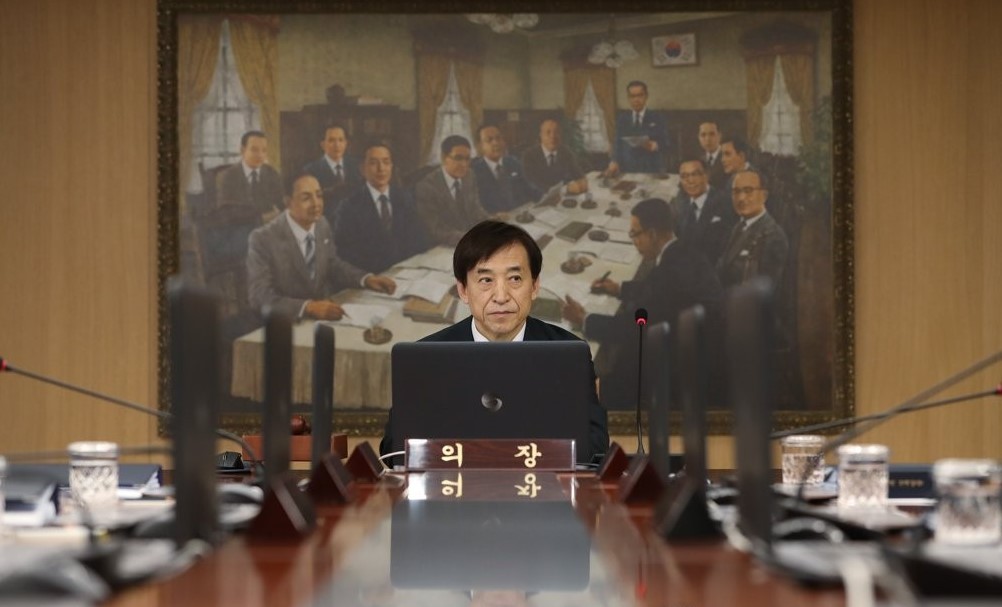South Korea's central bank left its policy rate unchanged at 1.75 percent Friday amid lingering concerns over weaker economic growth.
The monetary policy board of the Bank of Korea voted to leave the bellwether rate steady for the sixth straight month after raising it by a quarter percentage point in November last year.
The BOK's wait-and-see stance had been widely expected as South Korea's economy shows some signs of a downturn in exports and tepid domestic demand amid protracted US-China trade tensions.
 |
Bank of Korea Gov. Lee Ju-yeol attends a monthly rate-setting meeting at the central bank in Seoul on May 31, 2019. The BOK Monetary Policy Committee froze the benchmark policy rate at 1.75 percent for May amid lingering concerns over weaker economic growth. (Yonhap) |
There are growing arguments for the BOK to cut the key rate as an escalating trade feud between the United States and China is hurting global demand for South Korean goods.
But some analysts said the BOK is unlikely to ease its monetary policy anytime soon, citing risks of capital flight as a rate cut would help facilitate the Korean won's decline against the US dollar.
South Korea's export-reliant economy is struggling with a drawn-out trade dispute between the United States and China, and weaker private consumption at home.
Exports fell 2 percent in April from a year earlier, extending their on-year fall to the fifth consecutive month, according to government data.
Outbound shipments came to $48.86 billion for April, down from the $49.85 billion tallied a year earlier.
Meanwhile, consumer price growth stayed below the 1 percent threshold for the fourth consecutive month in April.
Consumer prices moved up 0.6 percent in April from a year earlier, and the reading is the lowest for any April since 2015.
Earlier this month, the state-run Korea Development Institute think tank suggested that the nation's monetary policy needs to be substantially accommodative, citing weaker inflation and slowing demand at home and abroad.
South Korea's economy contracted 0.3 percent in the first quarter from three months earlier, marking the worst performance since the 2008-09 global financial crisis. (Yonhap)








